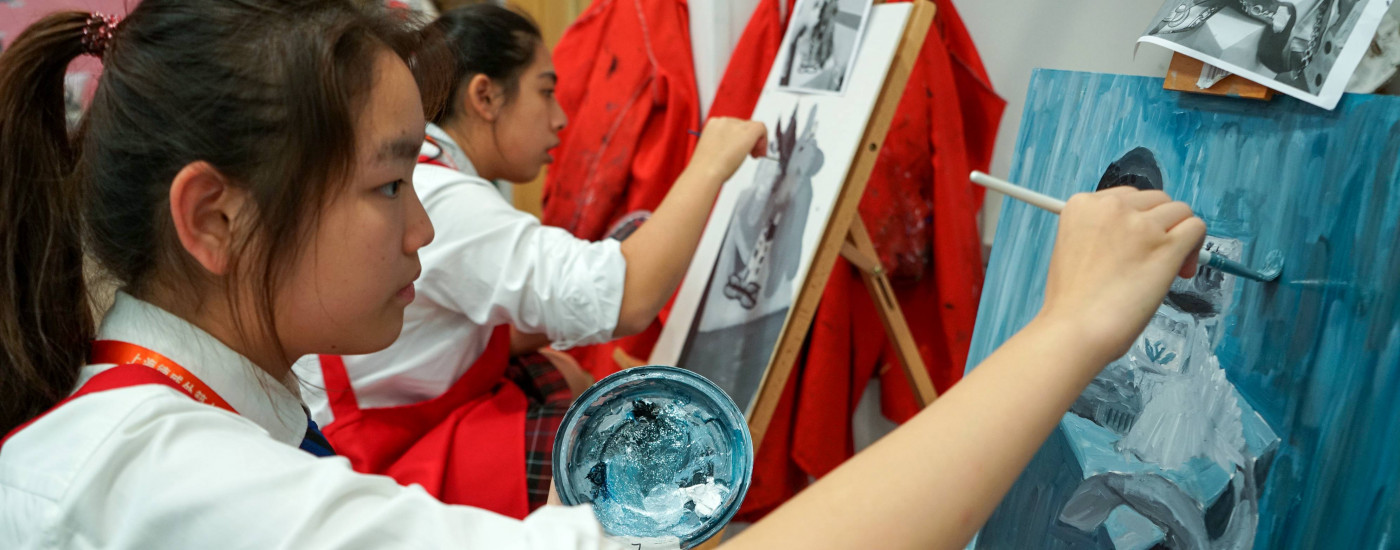The Value of Art in Education

The concept of ‘Art’ can often be misunderstood, and branded as a hobby, or, in a school context, as a ‘soft’ subject that will counter-act some of its more academic equivalents. Whilst this viewpoint might be held by some members of our society, civilisation has held Art in high regard since the beginning of time.
When trying to quantify the ‘value’ of Art, we often talk about its intrinsic value – how it can be used to facilitate a creative output. Yet it is important to recognise the wider impact that Art has on our economy, health and wellbeing, society and education.
The highest recorded values received at auctions aren’t for jewellery, or fancy cars, but for Art. Art is passed down from generation to generation, forming heirlooms that are treasured. Art can unite, and divide. It informs and educates us about our predecessors. The precise value of Art itself is somewhat hard to define, but it goes far beyond monetary value, and depicts the soul of a culture.
Studying Art in an educational environment isn’t intended to prepare all students to become artists. Art teaches you not only the technically competencies required, but also transferable skills such as critical awareness, independence, problem solving, focus, patience, perseverance, and, creativity.
It doesn’t matter if you study History or Geography or Science, you still need to be creative – because the people who are the outliers in those fields are the most creative people.
Cornelia Parker. ‘Why Study Art’ – TateShots, YouTube.
China giant, Alibaba founder Jack Ma is quoted as saying:
If we do not change the way we teach, 30 years from now we’ll be in trouble. The things we teach our children are things from the past 200 years - it’s knowledge-based. And we cannot teach our kids to compete with machines, they are smarter... I think we should teach our kids sports, music, painting - the arts - to make sure that they are different. Everything we teach should make them different from machines.
Article by Peter Barnes - https://blog.learnfasthq.com/jack-ma-teach-soft-skills-not-knowledge-to-compete-with-machines Feb 19th 2018.
Jack’s theory is also backed up by the World Economic Forum, who listed problem solving, critical thinking and creativity, as the top 3 skills that would land you the highest paying jobs in 2020. (Article by Ghulam Sumdany Don - https://www.linkedin.com/pulse/10-top-skills-land-you-high-paying-jobs-2020-ghulam-sumdany-don 30th June 2019.) In the UK, the creative industries are growing at a rate that is 5 times faster than the rest of the work force (https://www.thecreativeindustries.co.uk/resources/infographics).
At Dulwich College Shanghai Puxi, we teach Art in a manner that enables students to be imaginative, to develop resilience and independence and to be able to express themselves. Students are able to gain the skills, assurance and enthusiasm, in a variety of different mediums, to be able to develop, explore and create their imaginative ideas. We ask that they do their best, have confidence in their abilities and take risks.
Whether they choose to study Art at a higher education establishment or not, we aim for them to understand, appreciate and become lifelong advocates of the Creative Arts.





